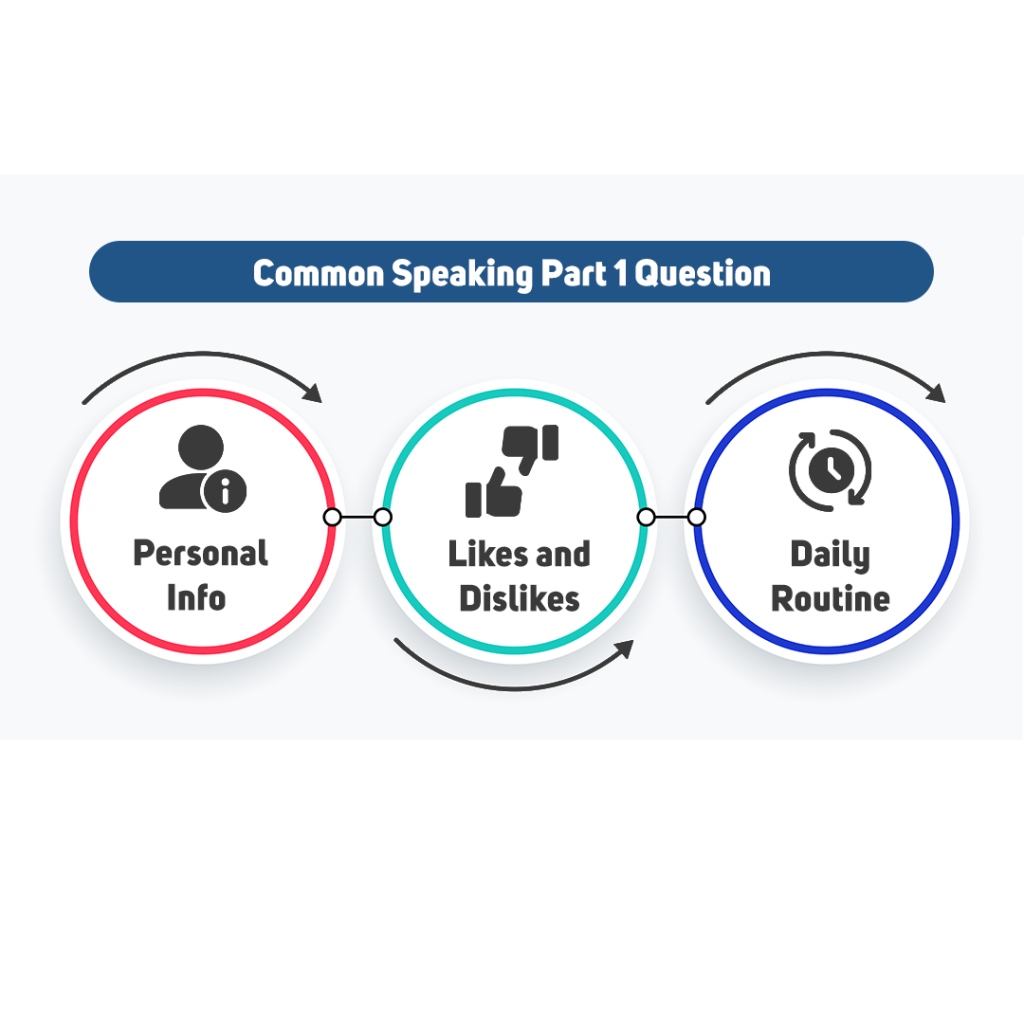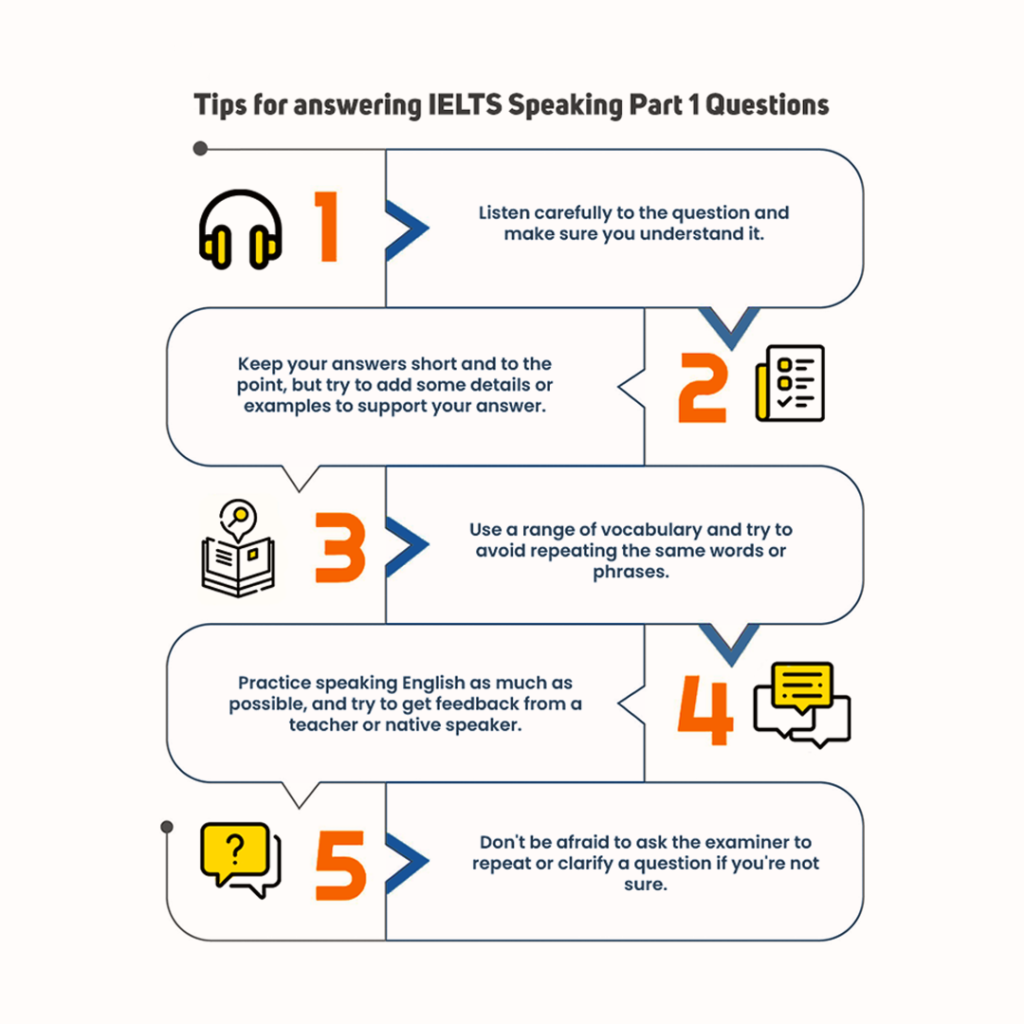Your cart is currently empty!
IELTS Speaking Part 1

IELTS Speaking Part 1
Common question type in Speaking Part 1

-
Personal information These questions are designed to get to know you better and might include topics such as your hometown, your family, or your job.
Example question: Can you tell me a little bit about your family?
Sample answer: Sure, I come from a family of four. My parents are both teachers, and I have an older brother who’s currently studying medicine.
Vocabulary:
- Hometown: The place where you were born or grew up.
- Siblings: Brothers and sisters.
- Occupation: Your job or profession.
-
Likes and dislikes These questions ask you about your preferences and interests, such as your favorite food, hobbies, or music.
Example question: What kind of music do you enjoy listening to?
Sample answer: I’m a big fan of indie rock, especially bands like Arcade Fire and The National. I find their music really thought-provoking and emotional.
Vocabulary:
- Preferences: Things that you like or enjoy.
- Interests: Activities that you enjoy doing.
- Thought-provoking: Something that makes you think deeply.
-
Daily routines These questions ask about your typical day or week, such as what you do in the morning or how you spend your weekends.
Example question: What do you usually do on your weekends?
Sample answer: On Saturdays, I usually like to go for a run or do some yoga in the morning. In the afternoon, I might meet up with friends for lunch or go shopping. On Sundays, I tend to relax at home and catch up on some reading or watch a movie.
Vocabulary:
- Routine: A set of actions that you do regularly.
- Run errands: To go out and do small tasks, such as shopping or banking.
- Catch up on: To do something that you didn’t have time to do before.

Tips for answering speaking part 1 question
- Listen carefully to the question and make sure you understand it.
- Keep your answers short and to the point, but try to add some details or examples to support your answer.
- Use a range of vocabulary and try to avoid repeating the same words or phrases.
- Practice speaking English as much as possible, and try to get feedback from a teacher or native speaker.
- Don’t be afraid to ask the examiner to repeat or clarify a question if you’re not sure.